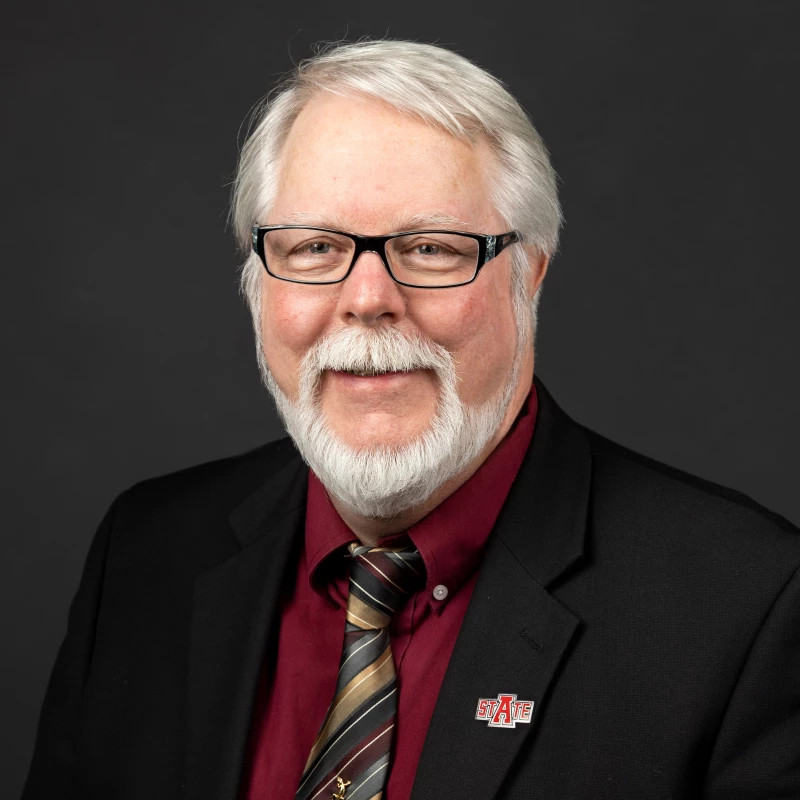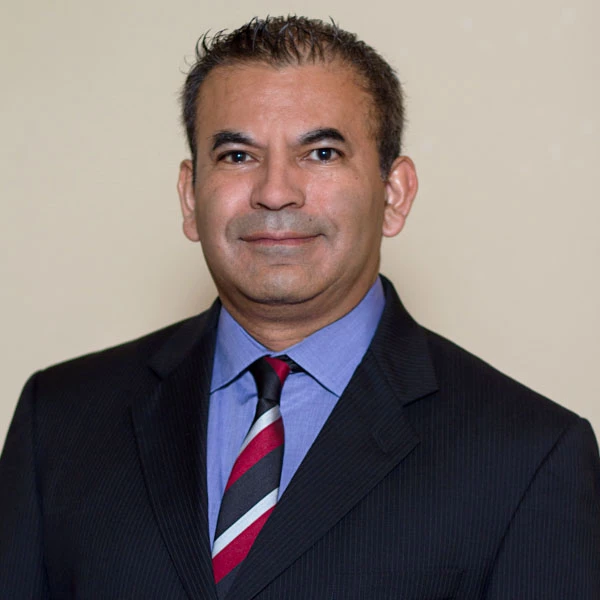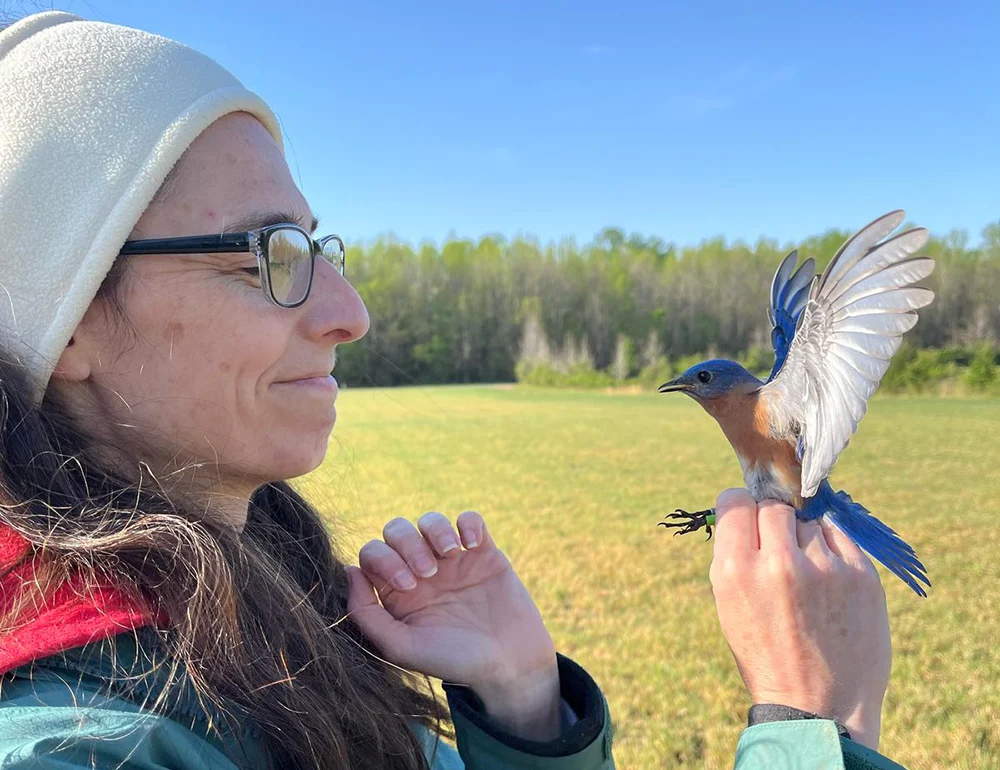Biological Sciences
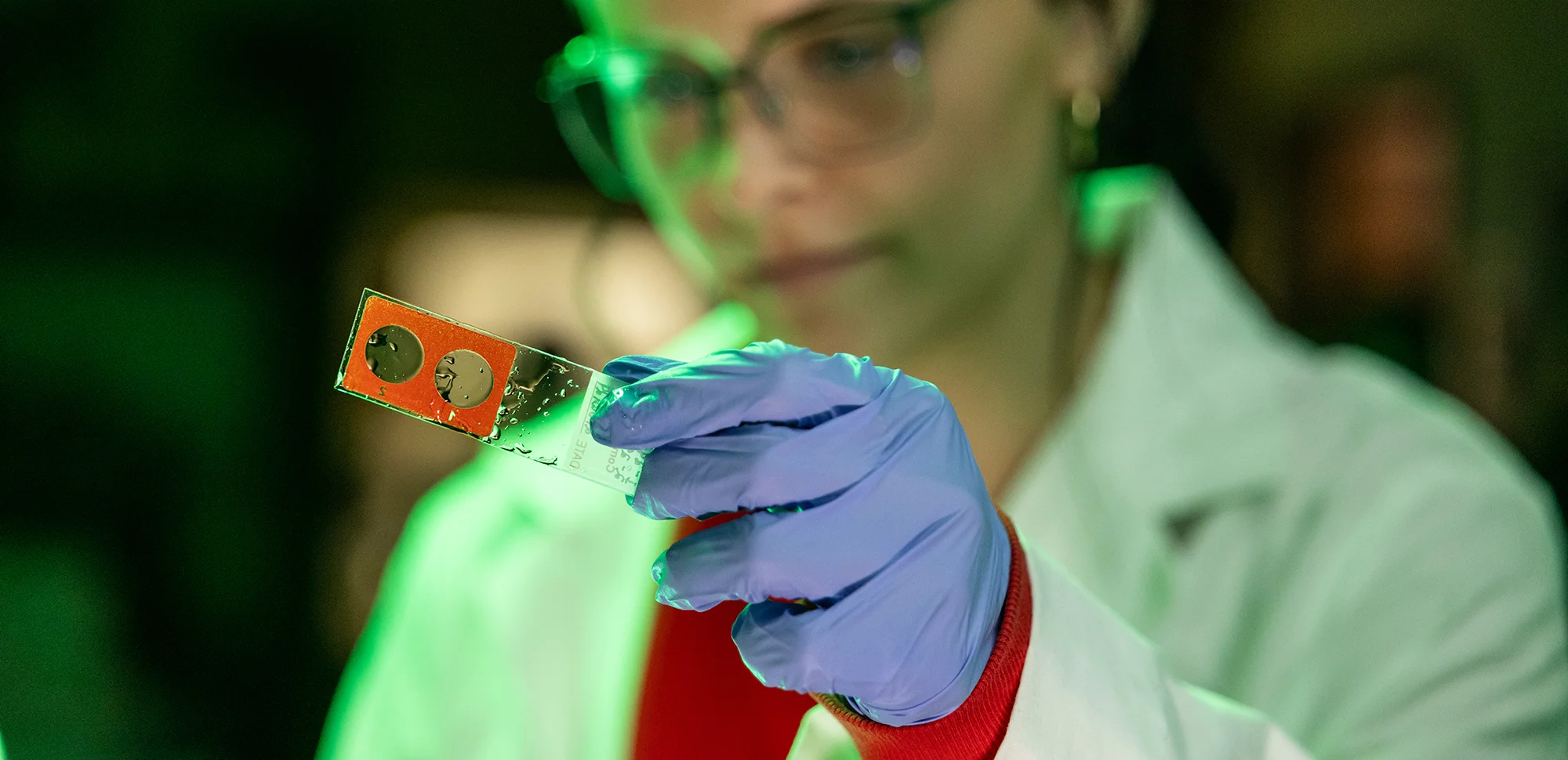
Follow Your Curiosity
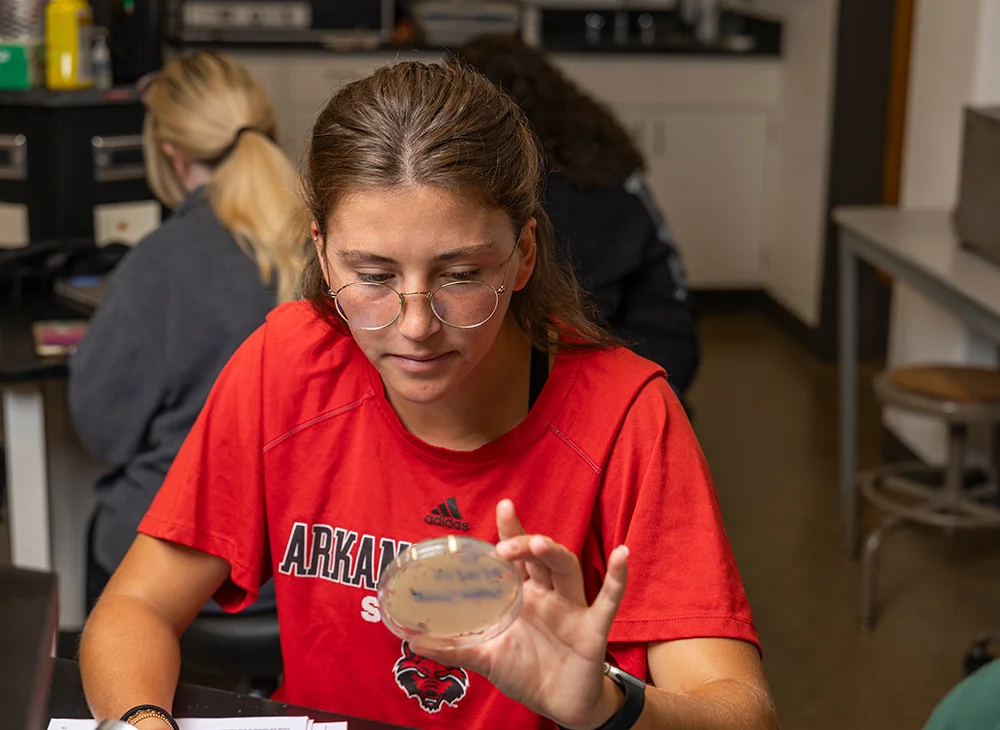
Undergraduate Programs
The professors and all the faculty members are always there to help me succeed in my career goals. Especially as an international student, it is very warming to know that your voice is heard and that you have a place and people to rely on.
Research Areas
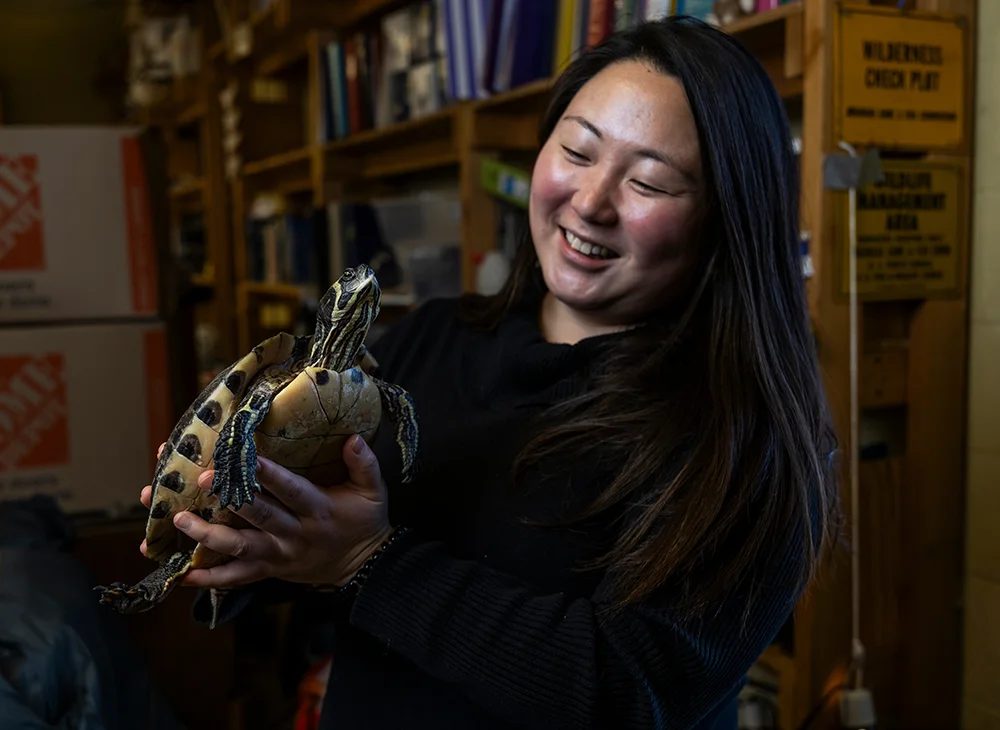
Ecology & Wildlife Management
Our Ecology and Wildlife Management research combines modern techniques with a strong focus on fieldwork. Students explore questions in conservation, resource management, and evolutionary ecology. Many projects combine more than one area of study.
Graduate students are supported through Teaching or Research Assistantships. Research Assistantships are typically linked to funded projects backed by state or federal grants.
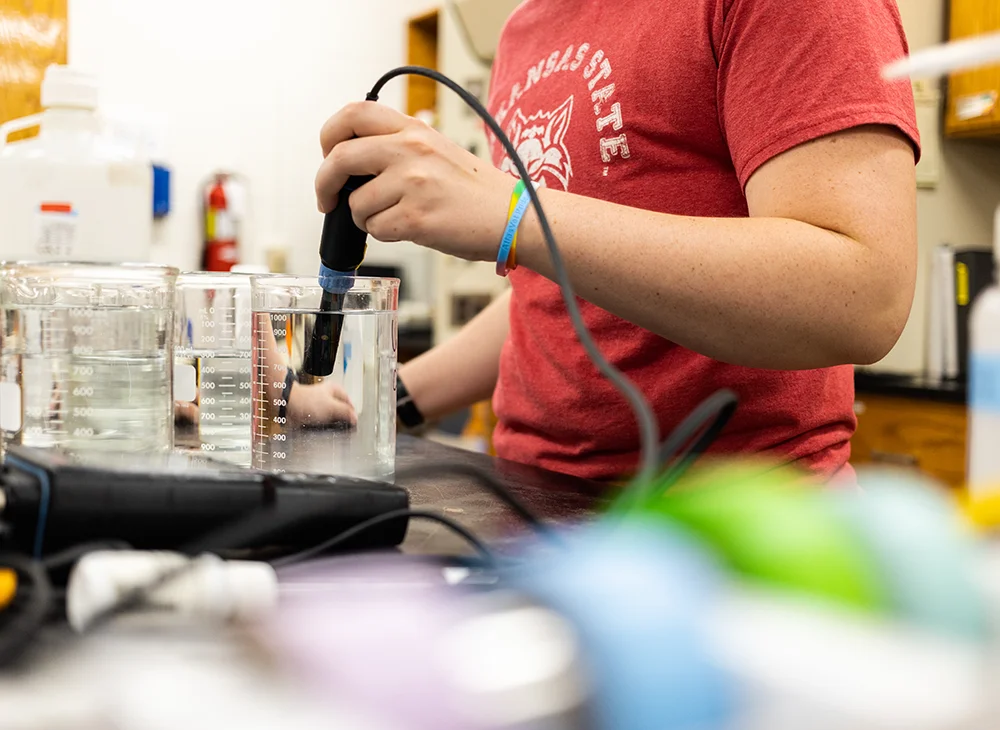
Environmental Biology
Research in this area focuses on protecting natural resources while supporting a strong economy. Students and faculty explore a wide range of topics, like aquatic and land toxicology, wetland ecosystems, habitat restoration, and more.
Facilities include the Ecotoxicology Research Facility, and the Aquatic Ecology Laboratory.
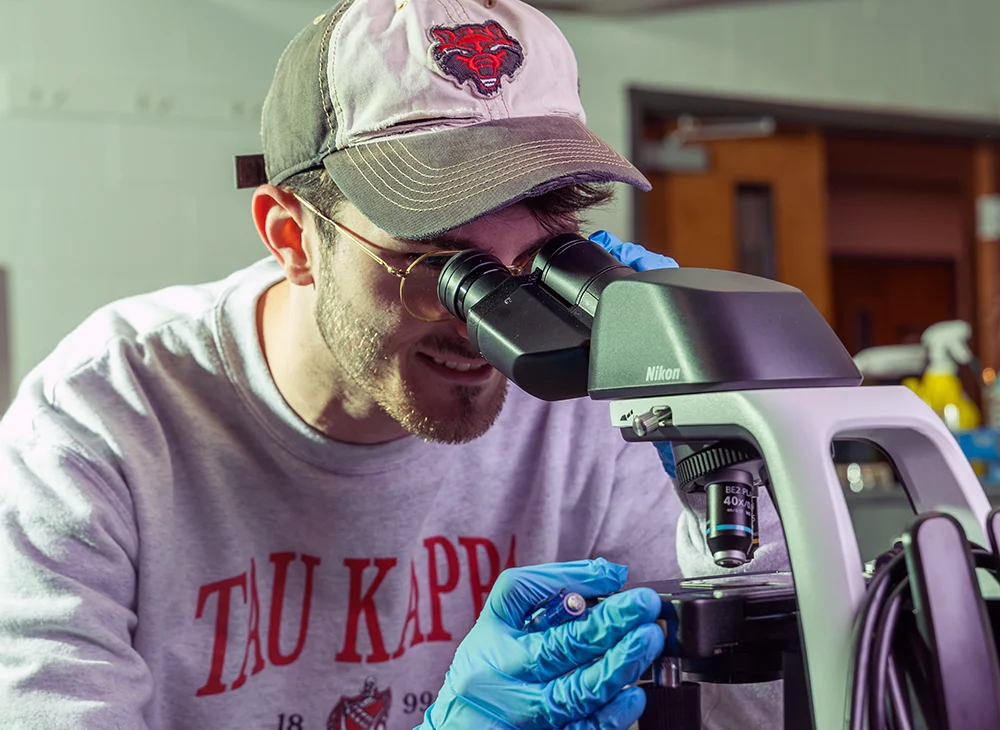
Molecular & Cell Biology
Research in this area covers a wide range of topics, from studying microorganisms to engineering plants to make proteins and medicines. Students also explore how cells develop and respond to toxins, including research on brain cells, neuron development, and the body's reaction to substances like nicotine.
Our students collaborate with faculty across A-State and work alongside researchers at other universities and agencies, gaining valuable experience while still in school.
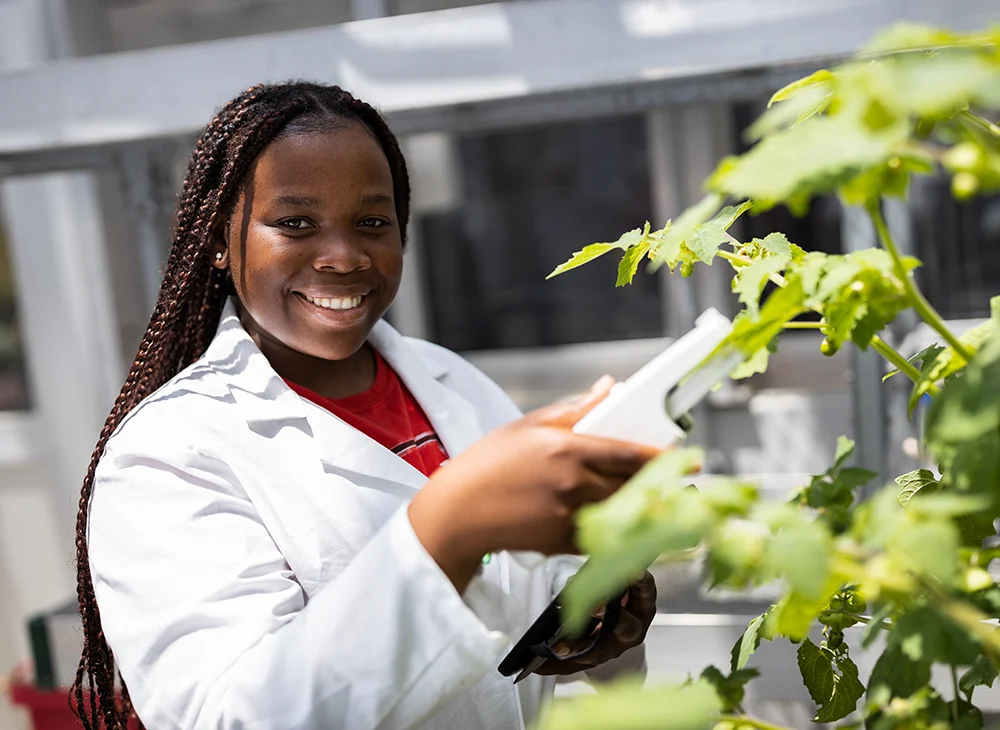
Plant Biology
This area of research spans all areas of botany, including evolution, reproduction, cell biology, ecology, and more. Students who are curious about plants have opportunities to deepen their understanding through coursework and hands-on research with faculty.
Graduate students are supported through Teaching or Research Assistantships. Research Assistantships are typically linked to funded projects backed by state or federal grants.
Explore Our Labs
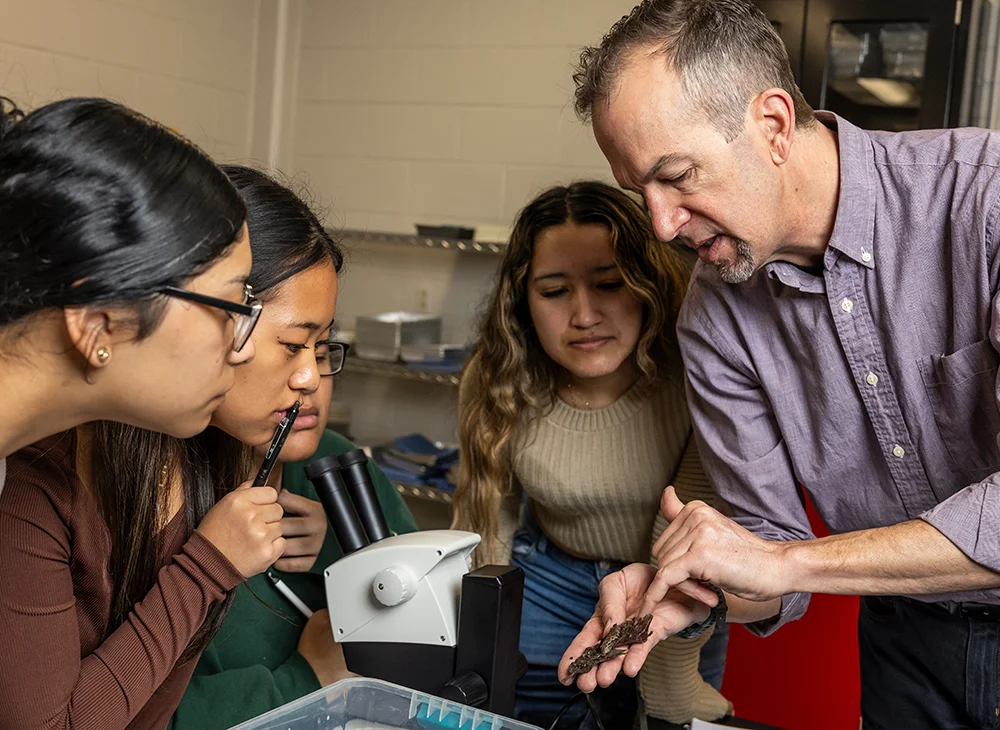
Ecology, Evolution & Conservation
These labs study ecological systems, animal populations, and evolutionary dynamics to inform conservation efforts and understand biodiversity.
- Boves Lab – Focuses on avian ecology, evolution, and conservation.
- Rolland Lab – Studies how human activity affects wildlife populations and movement.
- Mullin Lab – Examines behavioral and ecological questions at the population and community levels.
- Sweet Lab – Studies evolutionary biology of host-symbiont interactions.
- Gustafson Lab – Focuses on the molecular ecology of wildlife and parasite populations.
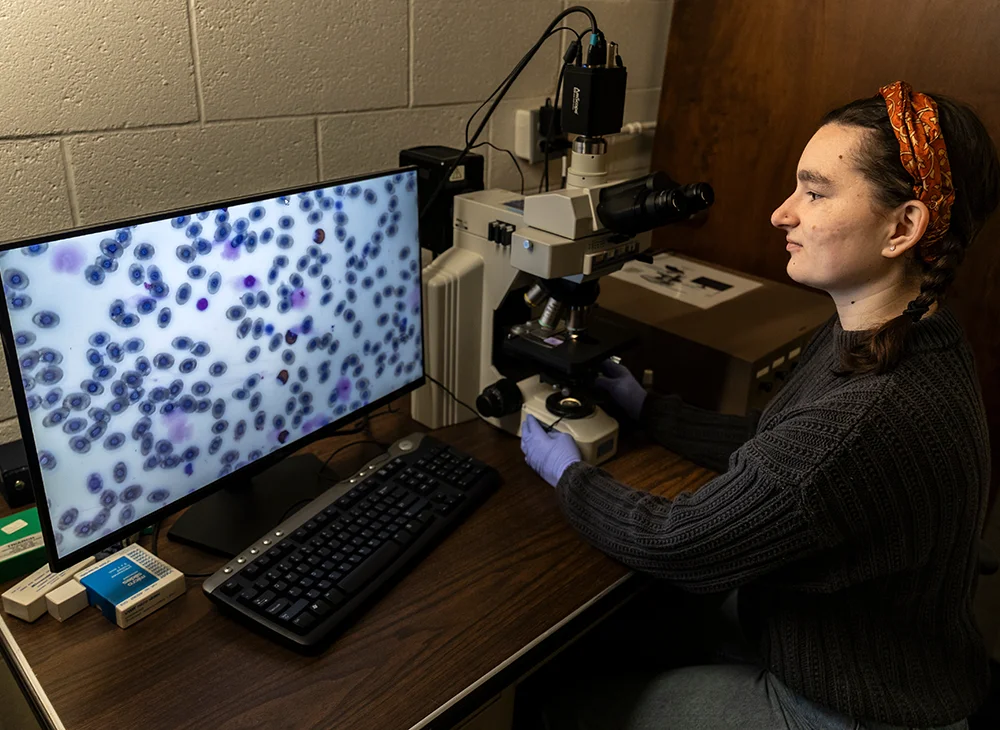
Molecular & Cellular Biology
These labs explore the inner workings of cells, proteins, and genes to better understand disease, aging, and biological function at the molecular level.
- Bailey Lab – Studies the molecular mechanisms of breast cancer metastasis to the brain.
- Dolan Lab – Develops protein-based therapeutics for veterinary and human health.
- Schmid Lab – Explores cellular mechanisms of aging using the Drosophila model.
- Wijeratne Lab – Studies plant-pathogen interactions using genomics and bioinformatics.
- Zhou Lab – Investigates cytoskeletal protein CAP1 and its role in cancer.
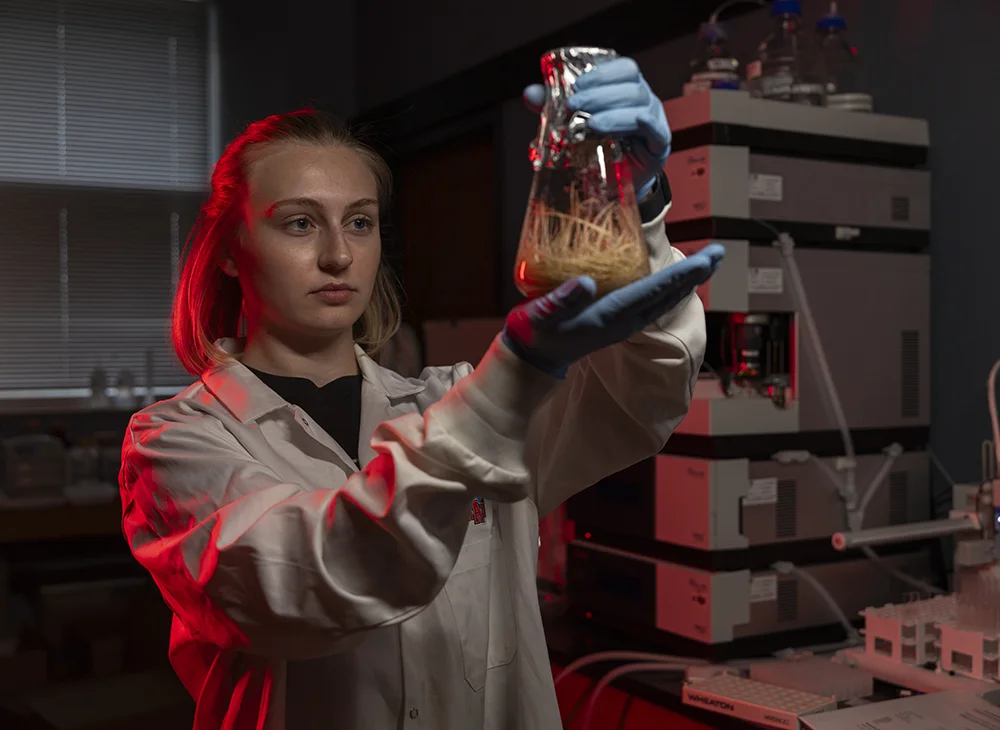
Plant Biology & Biotechnology
Focused on the biology of plants and their interactions with the environment and pathogens, these labs also explore the use of biotechnology for agriculture and human health.
- Mangan Lab – Identifies processes that shape plant community composition.
- Medina-Bolivar Lab – Uses hairy root cultures to produce compounds for plant and human health.
- Wijeratne Lab – Studies plant-pathogen interactions using genomics and bioinformatics.
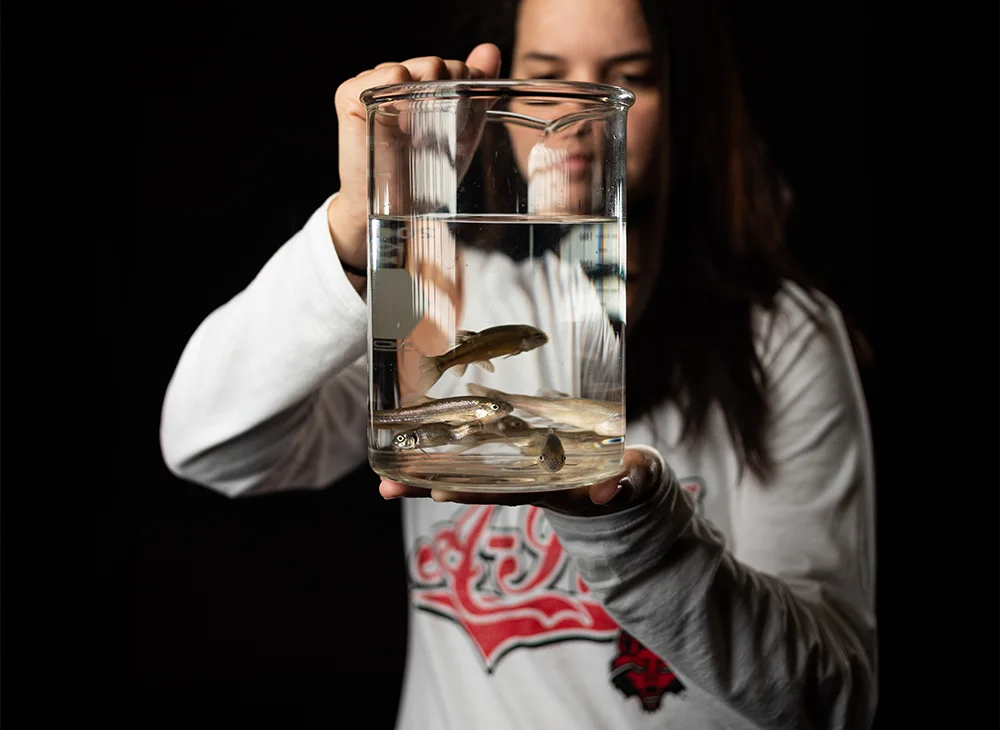
Aquatic Biology & Environmental Toxicology
Investigating the health and conservation of aquatic ecosystems, these labs research freshwater organisms, environmental toxins, and dynamics.
- Fluker Lab – Freshwater fish and mollusk conservation research.
- Bouldin Lab – Studies freshwater ecology and aquatic toxicology at the Ecotoxicology Research Facility.
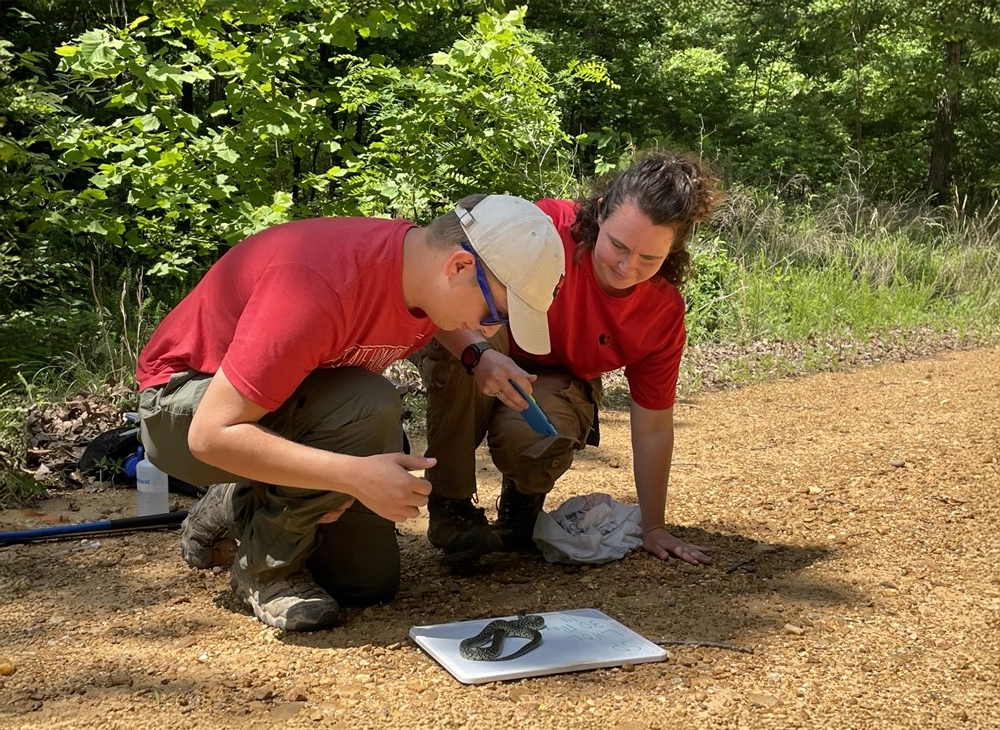
Physiology & Invertebrate Biology
These labs explore the physiology of animals, focusing on how they respond to environmental stress, disease, and other biological challenges.
- Neuman-Lee Lab – Explores immune and endocrine system interactions using lab and field techniques.
- McKay Lab – Studies mosquito-heartworm interactions and insects in stored grains.
Information & Resources
These scholarships and programs are supported exclusively by alumni, students, faculty, and friends of the department. Applications can be completed by applying via the Privately Funded Scholarships portal. All selections are made by the Department of Biological Sciences Scholarship Committee.
If you have any questions or concerns, please contact:
Dr. Tanja McKay
tmckay@astate.edu
870-972-3082
DR. LARRY A. OLSON NON-TRADITIONAL BIOLOGY STUDENT SCHOLARSHIP
Arkansas State University Foundation, Inc.
Award amount based on earnings of the endowment.
Qualifications for Receiving Scholarship
- Recipient must be a non-traditional sophomore or junior majoring in Biology or Wildlife,
Fisheries, and Conservation.
- A non-traditional student is one who did not enter college directly from high school, or has returned to college after a break of two years or more.
- Recipient must have a minimum of 16 credits in Biology, and a GPA of 3.0 or greater in their major.
- Students pursuing a B.S. degree in Biology with Pre-Professional emphasis are not eligible for this award.
Qualifications for Maintaining Scholarship
- Recipient is eligible to reapply for a maximum of four semesters for juniors, or two semesters for seniors.
JUSTIN M. HUMPHREYS MEMORIAL SCHOLARSHIP ENDOWMENT
Arkansas State University Foundation, Inc.
Award amount based on income from the principle assets.
Qualifications for Receiving Scholarship
- Recipient must be majoring in Biological Sciences.
- Priority goes to students in financial need.
Qualifications for Maintaining Scholarship
- Recipient is eligible to reapply.
FRESHMAN TO PHYSICIAN PATHWAY
The Freshman to Physician Pathway provides an opportunity for A-State students to secure early admission to the NYIT College of Osteopathic Medicine (NYITCOM) and begin preparing for careers in healthcare from the first day of college.
The Pathway offers a direct route from undergraduate enrollment at A-State to NYITCOM, provided students meet clearly defined academic and professional standards.
ADMISSION TO THE PATHWAY PROGRAM
- Arkansas Resident
- A combined SAT score of at least 1100 or ACT composite score of at least 26
- A high school GPA in the top 10% of the applicant’s high school class.
- Successful interview with the admissions committee for the Pathway Program.
ADMISSION TO NYITCOM AT A-STATE
To qualify for direct admission, students must maintain a 3.5 GPA in science and overall coursework (with a one-time semester waiver option), complete all required pre-med classes, receive a favorable recommendation from A-State’s premedical committee and pass an admissions interview with NYITCOM faculty.
Students who meet these criteria will not be required to take the MCAT, significantly reducing the cost and complexity of applying to medical school.
The Arkansas Center for Biodiversity Collections (ACBC) serves as the unified repository of natural history specimen collections from the Arkansas State University Museum of Zoology (ASUMZ) and the Arkansas State University Herbarium (STAR). Located on the Arkansas State University campus, the ACBC includes collections of aquatic macroinvertebrates (mostly larval insects), insects (pinned adults), bivalves, fishes, amphibians, reptiles, birds, mammals, diatoms, vascular plants, and non-vascular plants. There is a dominant regional focus within Arkansas, with specific geographic areas of interest being the Ozark Plateaus region, Crowley’s Ridge, and the Mississippi Alluvial Plain.
The vision of the ACBC is to serve as a unified, accessible specimen repository and research center for the State of Arkansas, including the Interior Highlands, Upper Mississippi Alluvial Plain, and Crowley’s Ridge ecoregions. This region is a major center of endemism for numerous taxonomic groups in eastern North America, but also one that has seen drastic landscape modifications over the past 150 years. A large proportion of the collections at ACBC cover these unique and diverse ecosystems and represent long-term records that pre-date or document biota during habitat transforming activities in the region. These collections, therefore, serve as base-line data points for ongoing and future changing conditions.
Connect With Us.
Faculty & Staff

